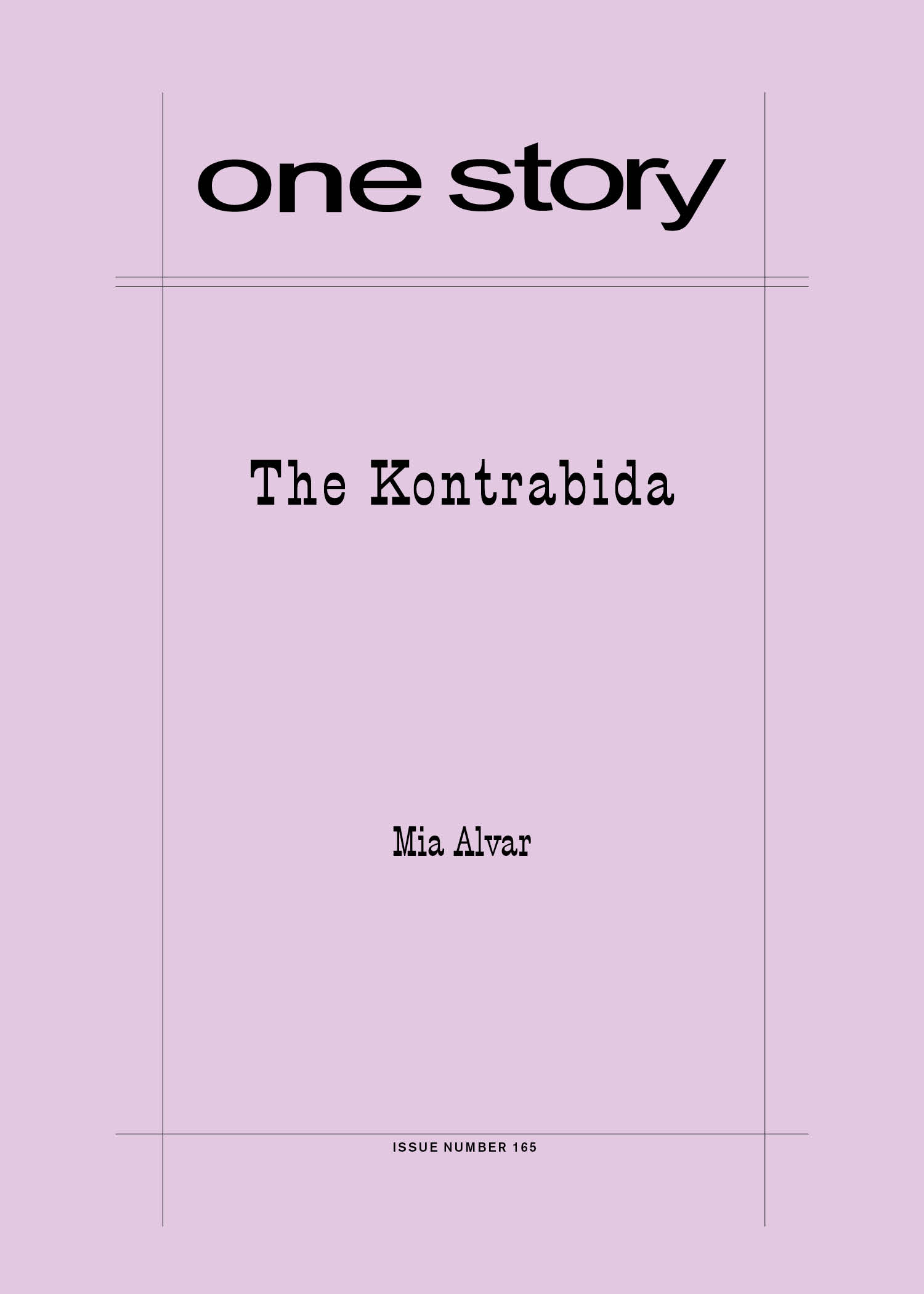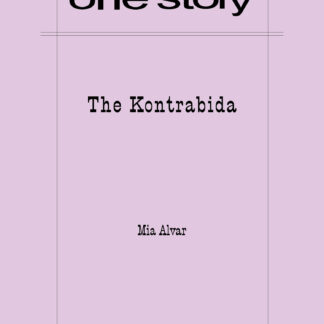
The Kontrabida
$2.50
73 in stock
Excerpt
My mother was waiting in front of our house when I rode up in a taxi. “There you are,” she said, as if we’d simply lost each other for an hour or two, at a party. I only half-embraced her, afraid she might break if I held too tight. Though she may have wanted to, she hadn’t been able to collect me from the airport herself. Long ago my father had forbidden her to drive, though I supposed he could do little to prevent it now.
“Let me,” she said, reaching for my suitcase. I waved her away. I would no sooner allow my mother to carry my suitcase than allow her to carry me. “Oh, Steve,” she protested. “You don’t know my strength!” She dropped her arms, flattening the palms against her lap, a habit I remembered well. Throughout my childhood she often looked to be drying her hands on an apron, whether or not she was wearing one.
Mia Alvar
Mia Alvar lives in New York City and has received fellowships from Yaddo and the Blue Mountain Center for the Arts. Her fiction has been nominated for a Pushcart Prize and cited for distinction in The Best American Short Stories, after appearing in The Missouri Review, The Cincinnati Review, Euphony and Small Spiral Notebook. Born in the Philippines and raised in Bahrain and the United States, she graduated from Harvard College and the MFA program at Columbia University.
Q&A by Hannah Tinti
- HT: Where did the idea for this story come from?
- MA: It came from my last visit to the Philippines, when my eighty-eight-year-old grandmother was very sick. I had mixed emotions during this trip: joy at reuniting with family, and grief over my grandmother, who died while I was there. It must be common among expats to process these two occasions, coming home and losing a loved one, at the same bittersweet time. Many particulars around my grandmother’s death in Manila, like the festive atmosphere at her wake and the bustling “funeral district” of Araneta Avenue, made a deep impression on me. But for a long time, I couldn’t write about them. The story didn’t emerge until I separated myself from the details and considered the reverse of my own experiences: what happens when a homecoming is not joyful? Is death, in the case of someone who isn’t so beloved, necessarily a sad thing? And what if a man were telling this story?
- HT: What was the most challenging aspect of writing this story?
- MA: Just finding the story and sticking to it took a longer time and many more drafts than anything else I’ve ever written. Once I realized that “The Kontrabida” is above all about Steve’s relationship with his mother and how that changes vis-à-vis the Succorol patches, I had to be ruthless (or follow ruthless advice) about scenes, passages, characters and story lines that didn’t belong. As serious and tightly wound as Steve is, I had fun writing in his voice, and there was a temptation to let him go on forever.
- HT: The details of “The Kontrabida” are so sharp, from the plastic sleeve of soda to the Tagalog karaoke. Do you spend a lot of time in the Philippines, and do you consider yourself a balikbayan?
- MA: No, my balikbayan credentials are pretty weak. A lot of the details in “The Kontrabida” come from that last visit, over thirteen years ago. These days I mostly return to the Philippines in my imagination and through the reminiscences of my family, who are a bunch of storytellers and hard-core karaokeers.
- HT: How did you come up with the setting of the sari-sari?
- MA: I didn’t; this actually happened. When my family left the Philippines, an uncle moved into my childhood home and converted the yard into a variety store like the one in the story and the kind you see in neighborhoods all over the Philippines. When I went back to visit, my efforts to “help out” in the store proved about as lame and disastrous as Steve’s. But your advice helped me see the sari-sari’s potential as the stage not just for a few comic moments in the beginning but also for some important events that move the story forward.
- HT: Steve’s mother is an extraordinary woman. Why do you think she stayed so long with her abusive husband?
- MA: I imagine that Loretta’s extremely traditional upbringing and beliefs about femininity, marriage and motherhood would have made it unthinkable for her to leave, especially as Esteban grew dependent on her through his periods of unemployment and illness. Also, she loves him, or did for a very long time. And without knowing it, the family has probably grown attached to their idea of her as a long-suffering wife. Loretta would sense that and feel a (maybe unconscious) duty not to take that away from them.
- HT: What’s next for Steve? Is he doomed to follow in his father’s footsteps, or his mother’s?
- MA: Neither, I think. Steve will probably just lean even more into his role as the blameless, upstanding savior of the family. Whether he tries to bring Loretta back to New York with him, or pays for fancy improvements on her house and sari-sari, he’ll find ways to reestablish himself as the generous hero who does the right thing and always comes to his mother’s rescue.
- HT: Can you tell us a little about the title?
- MA: To me, Loretta is the heart of the story. Though she’s never behaved like a villain or kontrabida in the past, she turns out to be capable of things Steve never imagined. I’ve always been interested in how “characters” get assigned within families—hero, villain, victim, etc.—and how those roles harden over time. Humans seem wired to cling to our images of others, especially of our parents, and to insist on labels even after people have outgrown them. Plus, kontrabida appeals to me as a very Filipino word. It’s almost a map of the country’s colonial history: Spanish roots, a Tagalog spelling and a touch of American Hollywood drama.
- HT: What are you working on now?
- MA: I’m working on a collection of short stories about Filipino immigrants and expats. For the most part, I follow these characters as they start new lives in America or the Middle East, though some of them, like Steve, are returning rather than leaving home.
- HT: What is the best bit of advice about writing you have ever received?
- MA: I love what Charles Baxter says in Burning Down the House: “Paradise is not a story.” In real life a happy marriage or a fulfilling career might be perfectly interesting, but fiction needs some kind of trouble in it to be worth reading.
